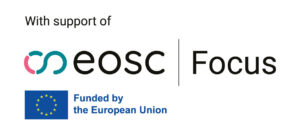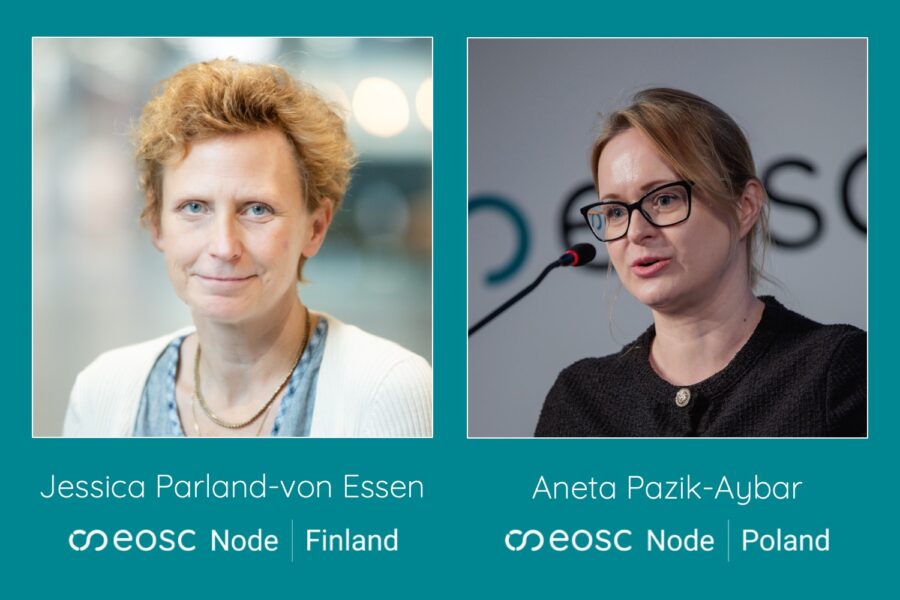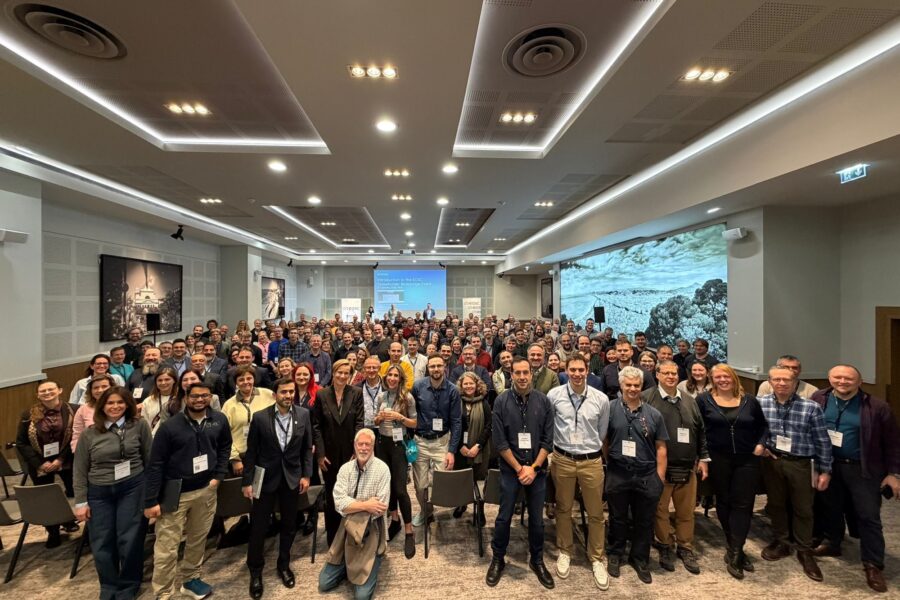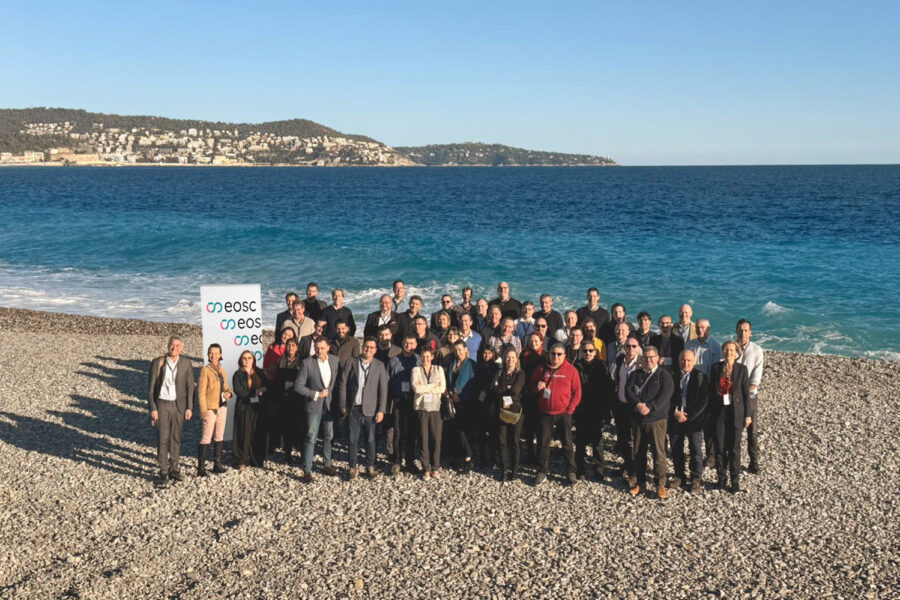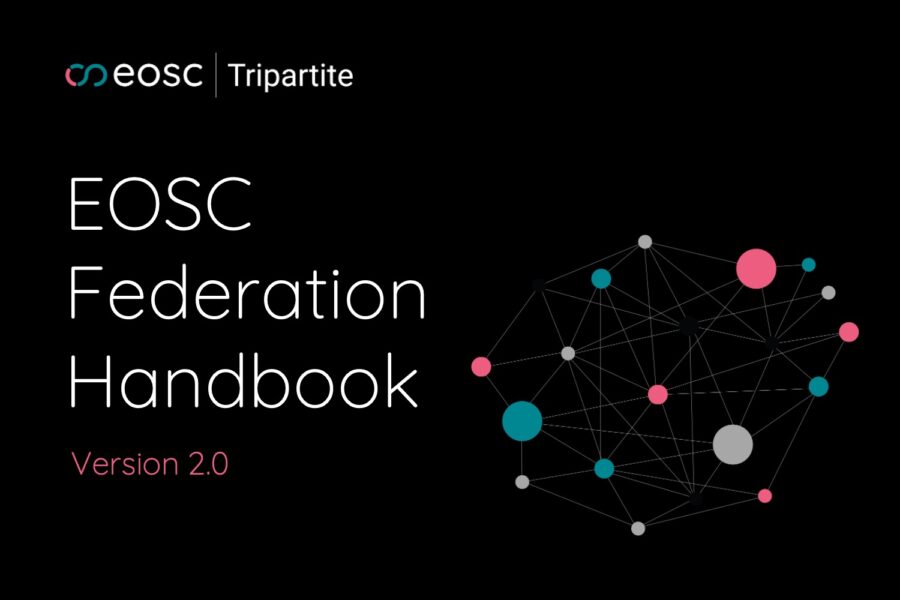ATHENS — On 10 December 2024, the second Greek National Tripartite Event (NTE) took place in Athens at the National Center for Natural Sciences Research (EKEFE) “Demokritos” as a hybrid co-event of the 3rd Symposium on Open Science in Greece.
Organised by the Hellenic Open Science Initiative (HOSI) under the joint auspices of the Ministries of Development, of Digital Governance, and of Education, Religious Affairs and Sports, the event brought together 433 representatives from the Greek research, academic and business communities, as well as government bodies. In-person attendance included nearly 200 participants.
The programme included sessions on the HOSI vision, the European framework for developing Open Science and EOSC, Greek stakeholders shaping relevant policies, national case studies from across Europe, and Greek contributions to Open Science and EOSC. The opening session featured a welcome note from the political leadership emphasising strategic initiatives to enhance research, innovation and Open Science principles.
Strategic initiatives of HOSI
The president of HOSI, Spyros Athanasiou (Athena RC), presented the progress in establishing a strong national framework to promote Open Science. Formally established in 2022, HOSI currently comprises 16 members, including the National Infrastructures for Research and Technology (GRNET), which has the status of Mandated Organisation in EOSC-A and is represented by HOSI vice president Kostas Koumantaros.
HOSI’s recent key roles were highlighted, including its suggested mandate under the Horizon Europe Policy Support Facility (PSF) Open Policy proposals, along with Athena RC leading the consortium for the EOSC EU Node Platform. Elli Papadopoulou (Athena RC), representing OpenAIRE NOAD in Greece, emphasised HOSI’s bottom-up approach in revising the first National Plan for Open Science (2020) to leverage implementation actions.
European framework for the development and implementation of Open Science and EOSC
The next session focused on research policies and infrastructures that shape Open Science at the European level. Yannis Ioannidis (University of Athens) presented the role of the European Strategy Forum on Research Infrastructures (ESFRI) in impacting Open Science ecosystems, connecting science clusters, and balancing national and European funding.
Ahmad Zein (CHIST-ERA), representing the consortium of European research funding organisations, shared funders’ perspective on advancing research practices and influencing the adoption of national policies. Next, Federica Garbuglia of European University Association (EUA) highlighted the importance of strengthening collaboration among European universities, referencing key strategies from the Open Science Agenda 2025.
Pantelis Tziveloglou from the European Commission discussed the recent launch of the EOSC EU Node supported by relevant Horizion Europe projects, and highlighted Greece as the Member with the fifth highest number of participants. Representing the EOSC-A Board, Klaus Tochtermann gave an update on the recent activities of the Association, including the build-up phase of the EOSC Federation and the Handbook that will address its governance and operations.
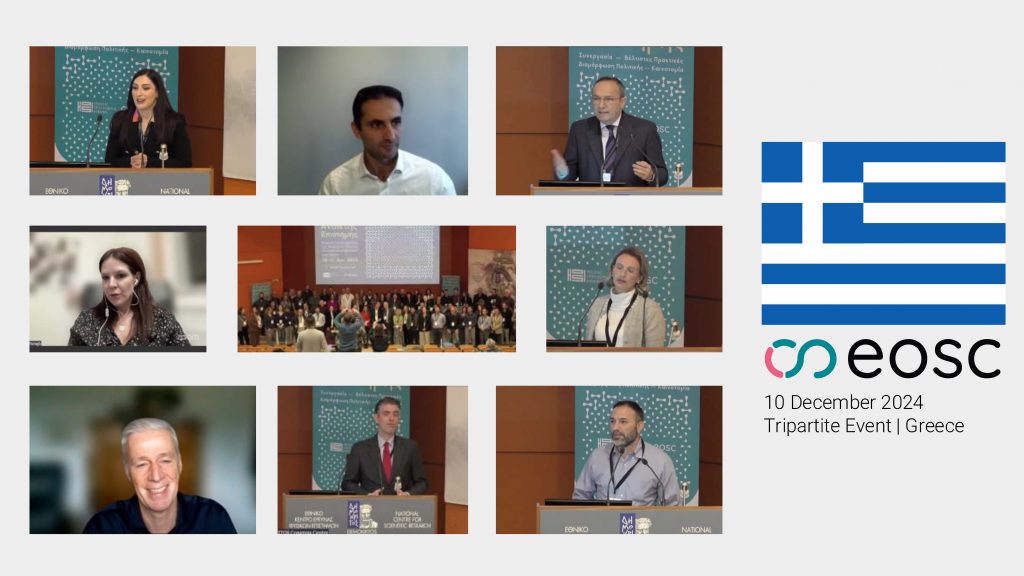
Future of Open Science in Greece
The panel discussion among representatives of the three Greek ministries, several funding organisations and academic structures addressed the challenges and opportunities of implementing Open Science in the country and the actions needed to create a cohesive national framework. The main action items agreed upon were to improve collaboration between top-down and bottom-up stakeholders on revising the Digital Transformation Bible (2020-2025) based on PSF recommendations, and facilitate clear communication among the relevant Ministries to execute their responsibilities.
National case studies from across Europe and Greek contributions to Open Science and EOSC
The last session showcased initiatives and strategies from various countries, including Finland, the Netherlands, Hungary, Croatia, Cyprus and Greece, to promote Open Science at developing infrastructures, strengthening research data management, increasing open access to publications, evaluating research, and creating services connected to EOSC.
The Greek contributions to Open Science and EOSC were also pitched by a number of research community representatives, featuring the development of skills and the support of research infrastructures to enhance interoperability, policies and innovative services. The challenges, achievements, and their role in supporting scientific collaboration at both national and European levels were highlighted by several INFRAEOSC projects.
In her concluding remarks, Elli Papadopoulou, co-chair of the FAIR Metrics and Digital Objects task Force, expressed Greece’s continuous ambition to participate in Open Science initiatives and EOSC-related projects, positioning the country as one of the leading ones in Europe. She emphasised Open Science as the new norm for fostering communication with relevant ministries and involving stakeholders in HOSI.
Additionally, a report on other countries’ Open Science activities and plans will be sent to the three Greek ministries participating in the NTE, along with the revised plan earlier submitted to their General Secretariats. The key issues raised will be further discussed at the upcoming General Assembly of HOSI on 16 December 2024.


